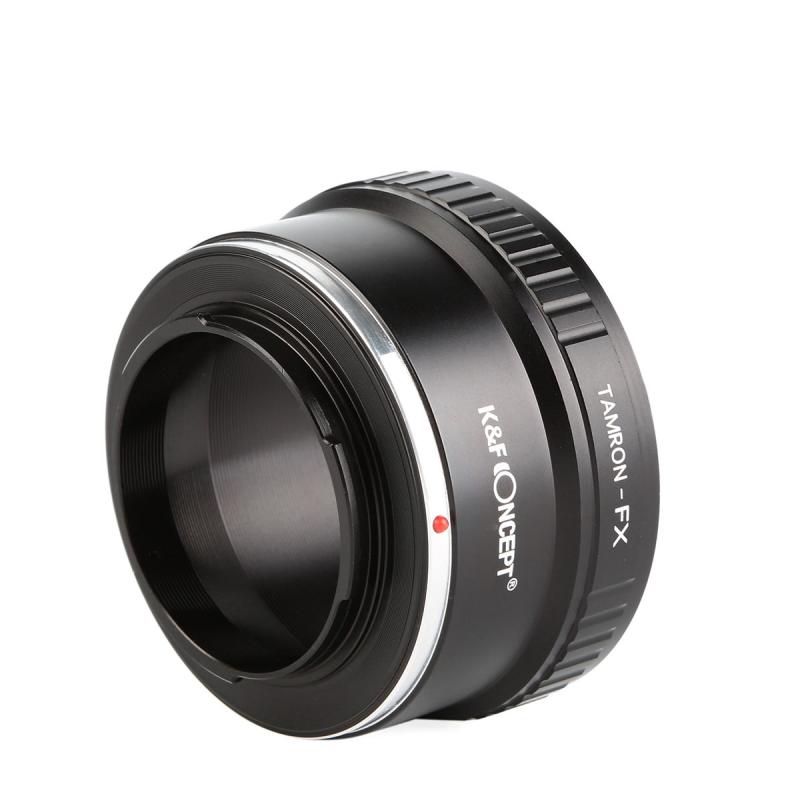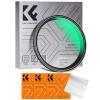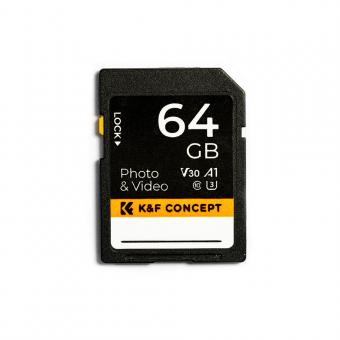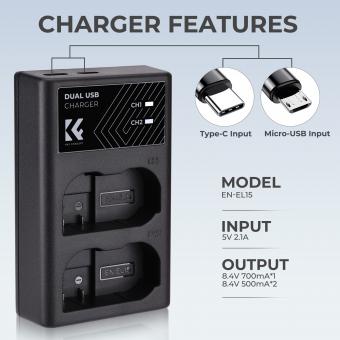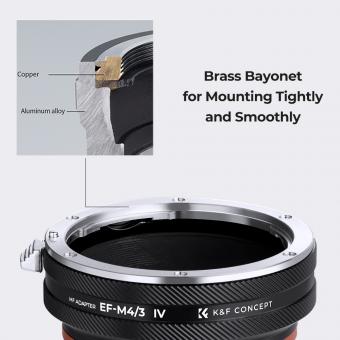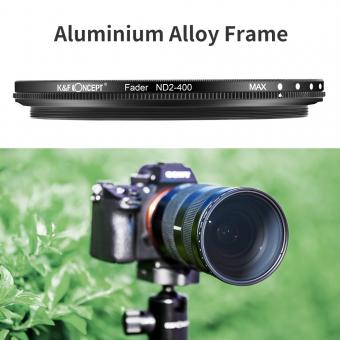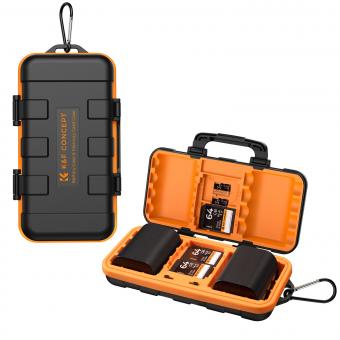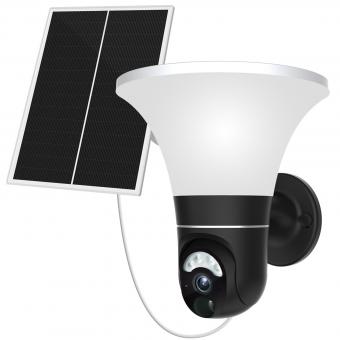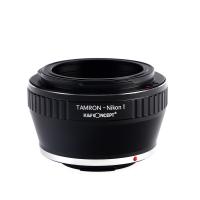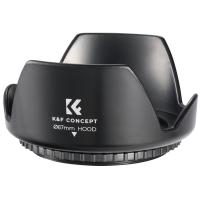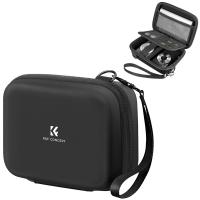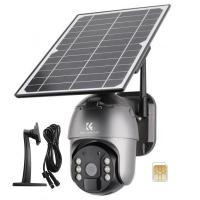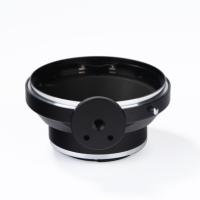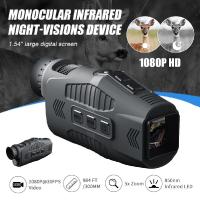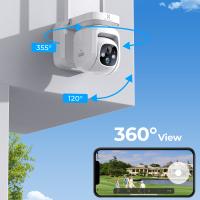How Long Do Wireless Security Camera Batteries Last ?
The battery life of wireless security cameras can vary depending on several factors such as the camera model, usage, and settings. Generally, wireless security camera batteries can last anywhere from a few weeks to several months. Some cameras are designed to conserve battery power by only recording when motion is detected, while others may continuously record footage, which can drain the battery more quickly. Additionally, extreme weather conditions, such as very hot or cold temperatures, can also affect battery life. It is recommended to check the specifications provided by the manufacturer for the estimated battery life of a specific wireless security camera model.
1、 Battery capacity and technology advancements in wireless security cameras.
Battery life in wireless security cameras can vary depending on several factors, including battery capacity and technology advancements. In general, the battery life of wireless security cameras can range from a few weeks to several months.
Battery capacity plays a crucial role in determining how long a wireless security camera's battery will last. Cameras with larger battery capacities can typically last longer before needing to be recharged or replaced. However, it's important to note that higher battery capacity often means a larger and bulkier camera, which may not be suitable for all installation scenarios.
Technology advancements have also contributed to improvements in battery life for wireless security cameras. Manufacturers have been working on developing more energy-efficient cameras that can operate for extended periods without draining the battery quickly. These advancements include the use of low-power consumption components, optimized software algorithms, and motion-activated recording features.
Additionally, some wireless security cameras now offer the option of connecting to a power source, such as a solar panel or an electrical outlet, to provide continuous power supply. This eliminates the need to rely solely on battery power and ensures uninterrupted surveillance.
It's worth noting that the latest point of view on battery life in wireless security cameras is that there has been a significant improvement in recent years. With advancements in battery technology and energy-efficient designs, some wireless security cameras can now last up to six months or even longer on a single charge. However, it's important to consider factors such as camera usage, recording settings, and environmental conditions, as these can affect battery life.
In conclusion, battery life in wireless security cameras is influenced by factors such as battery capacity and technology advancements. While the exact duration can vary, the latest advancements have led to significant improvements in battery life, allowing some cameras to operate for several months on a single charge.
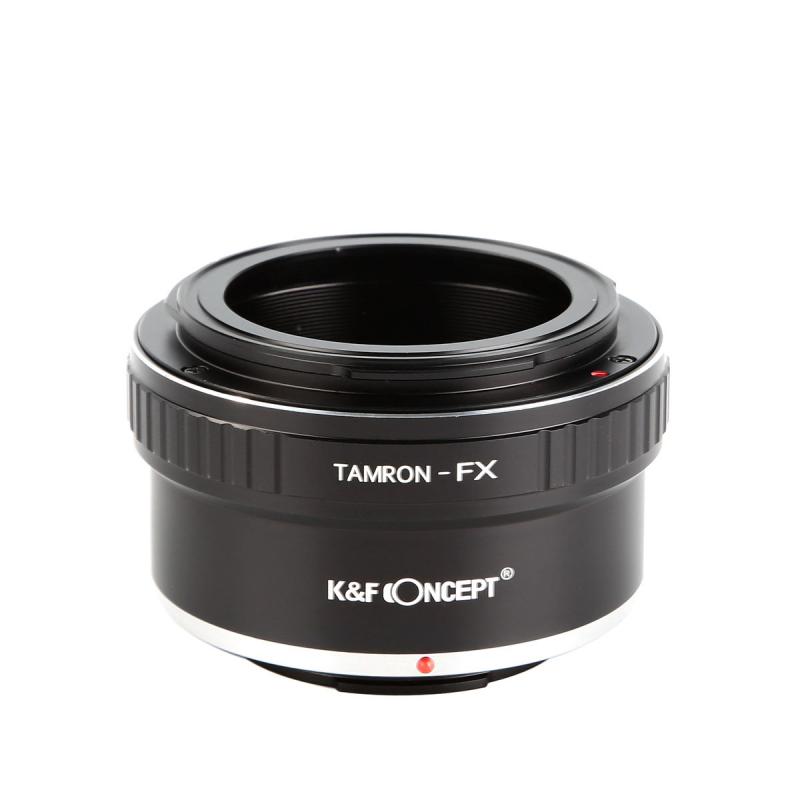
2、 Factors affecting battery life in wireless security cameras.
Factors affecting battery life in wireless security cameras include the camera's power consumption, the capacity of the battery, the quality of the battery, the camera's settings and usage, and environmental conditions.
Power consumption is a crucial factor in determining how long the battery will last. Higher resolution cameras and cameras with advanced features such as night vision or motion detection tend to consume more power. Therefore, cameras with these features may have shorter battery life compared to cameras with basic functionalities.
The capacity and quality of the battery also play a significant role. Higher capacity batteries can store more energy and provide longer operating times. Additionally, the quality of the battery affects its efficiency and overall lifespan. Using high-quality batteries can result in better performance and longer battery life.
The camera's settings and usage patterns also impact battery life. For example, continuous recording or live streaming will drain the battery faster than intermittent recording or motion-activated recording. Adjusting the camera's settings to optimize power consumption can help extend battery life.
Environmental conditions can also affect battery life. Extreme temperatures, whether hot or cold, can reduce the efficiency of the battery and shorten its lifespan. It is important to consider the operating temperature range specified by the manufacturer and avoid exposing the camera to extreme conditions.
The latest point of view on battery life in wireless security cameras is that advancements in technology have led to the development of more efficient cameras and batteries. Manufacturers are constantly working on improving power consumption and battery life to meet the demands of consumers. Additionally, the use of rechargeable batteries and solar-powered options has become more popular, providing longer battery life and reducing the need for frequent battery replacements.
In conclusion, the battery life of wireless security cameras can vary depending on several factors. Power consumption, battery capacity and quality, camera settings and usage, and environmental conditions all play a role in determining how long the battery will last. It is important to consider these factors when choosing a wireless security camera and to optimize settings to maximize battery life.
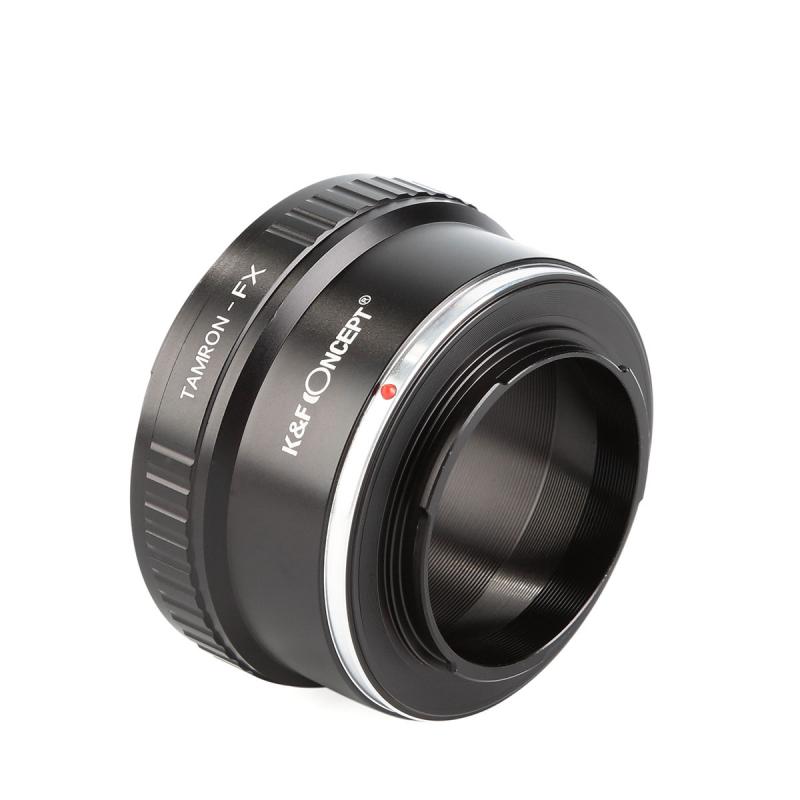
3、 Typical battery life expectancy for wireless security cameras.
The battery life expectancy for wireless security cameras can vary depending on several factors. These factors include the camera's power consumption, the quality of the battery, the camera's settings, and the frequency of use.
On average, wireless security camera batteries can last anywhere from three to six months. However, this estimate can change based on the camera's features and usage patterns. For example, cameras with higher resolution and advanced features like motion detection and night vision tend to consume more power and may have shorter battery life.
It's important to note that advancements in battery technology have led to improvements in the battery life of wireless security cameras. Some manufacturers now offer cameras with rechargeable batteries that can last up to a year on a single charge. Additionally, some cameras have the option to connect to a power source, allowing for continuous operation without relying on battery power.
To maximize battery life, it is recommended to adjust camera settings to optimize power consumption. This may include reducing the camera's resolution or adjusting the sensitivity of motion detection. Regularly checking the battery level and charging or replacing batteries as needed is also crucial for uninterrupted surveillance.
It's worth mentioning that the battery life of wireless security cameras is constantly evolving as technology advances. Manufacturers are continuously working on improving battery efficiency and developing new power-saving features. Therefore, it is always a good idea to check the specifications and reviews of specific camera models to get the most accurate and up-to-date information on battery life expectancy.
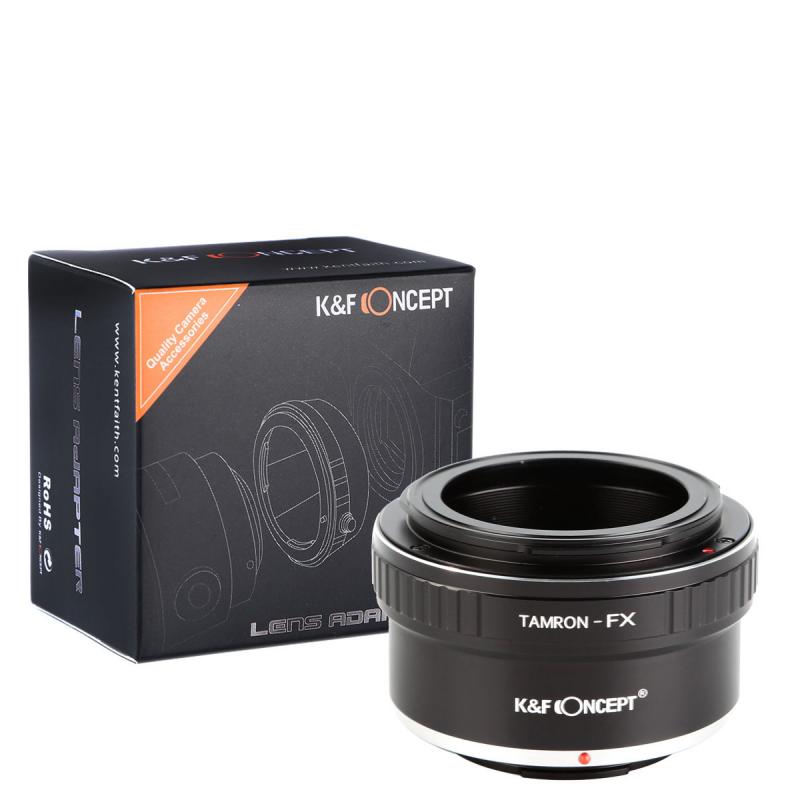
4、 Tips for maximizing battery life in wireless security cameras.
Tips for maximizing battery life in wireless security cameras:
1. Choose a camera with efficient power management: When selecting a wireless security camera, look for one that has advanced power management features. Some cameras have motion detection sensors that can activate the camera only when there is movement, saving battery life.
2. Optimize camera settings: Adjust the camera settings to optimize battery life. Lowering the resolution and frame rate can significantly extend the battery life. Additionally, disabling unnecessary features like audio recording or infrared night vision when not needed can help conserve power.
3. Position the camera strategically: Proper camera placement is crucial for maximizing battery life. Ensure that the camera is positioned in an area with good Wi-Fi signal strength. Weak signals can cause the camera to consume more power as it tries to maintain a connection.
4. Regularly check camera firmware updates: Manufacturers often release firmware updates that can improve the camera's power efficiency. Regularly check for updates and install them to ensure your camera is running on the latest software.
5. Use a solar panel or external power source: If possible, consider using a solar panel or an external power source to supplement the camera's battery. This can help extend the battery life significantly, especially in areas with ample sunlight.
6. Monitor battery levels: Keep an eye on the camera's battery levels and recharge or replace them as needed. Some cameras have battery level indicators that can provide real-time information on the remaining battery life.
The battery life of wireless security cameras can vary depending on factors such as camera model, usage, and environmental conditions. On average, wireless security camera batteries can last anywhere from a few weeks to several months. However, advancements in battery technology and power management techniques are constantly improving, so it's always a good idea to check the latest specifications and reviews for the most up-to-date information.
